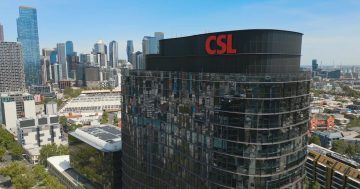
More public servants have voted to strike over wages. Photo: File.
Union members at more federal government departments have voted for strike action over a better deal for APS wages.
Meat inspectors and on-plant veterinarians employed at the Department of Agriculture, Forestry and Fisheries around the country will take part in protected action after Community and Public Sector Union members voted overwhelmingly in favour of strike action.
In the Department of Employment and Workplace Relations – the very agency charged with overseeing industrial relations rules – CPSU members also had a massive turnout voting for stoppages.
The latest actions bring the total to half a dozen federal agencies involved in protected action or Fair Work Commission bargaining orders since the Federal Government’s offer of an 11.2 per cent wage increase over three years was rejected.
At DEWR, 87 per cent of CPSU members voted in a protected action ballot and 75 per cent said yes to taking an unlimited number of stoppages of work for periods of up to and including 1 hour, and 70 per cent voted to take an unlimited number of stoppages of work for periods of more than 1 hour and up to and including 24 hours.
At DAFF, 86 per cent of CPSU member meat inspectors and on-plant vets voted in the ballot.
Results from that ballot saw 79 per cent voting to take an unlimited number of stoppages of work for periods of up to and including 1 hour, and 75 per cent voted to take an unlimited number of stoppages of work for periods of more than 1 hour and up to and including 24 hours.
They also voted (76 per cent) to take an unlimited number of bans or limitations on working outside standard hours and (74 per cent) to take an unlimited number of bans or limitations on performing overtime.
When the action will take place and for how long is still being decided.
The CPSU has a claim in for a 20 per cent wages hike over three years, but the government is not prepared to go anywhere near that and appears to be sitting on its 11.2 per cent offer, having revised it up from 10.5 per cent.
The union’s membership voted 51.9 per cent in favour of the package currently on offer, but union bosses said that result was not an emphatic enough result to be accepted.
CPSU national secretary Melissa Donnelly said union members were now considering their next steps.
“Our union came to the bargaining table with a pay claim that was front-loaded because our members were telling us that the cost-of-living crisis was biting now,” she said.
“Unsurprisingly, the government’s revised pay offer, which did not take on board this message from union members, failed to garner clear support from APS employees.
“We are urging the government to do better on pay because their workforce needs financial relief, and they need it now.
“We must not allow the bargaining process to delay workers getting their pay rise or having access to the raft of new conditions that have been negotiated.
“There is a clear fix here for the government.”
The Australian Public Service Commission has embarked on a campaign to educate the workforce about the benefits of the entire wages and conditions package it has placed on the table.
Along with flexible working arrangements and generous parental leave in the agreement, the extra financial benefits of the package are also being highlighted, including addressing pay fragmentation across agencies.
“Overall, there are some significant pay increases impacting the APS under the current APS bargaining package of pay and conditions,” the APSC has said in a staff update.
“The approach to address pay fragmentation will see some significant increases for many APS employees.
“The adjusted approach creates a base salary range at each APS classification from APS1 to EL2 but further reduces the current average fragmentation from 25 per cent to 13 per cent.
“This is a significant first step following the decades it has taken to create these pay differences across the service.
“The approach to pay fragmentation will lift salaries in 83 different agencies, impacting almost 8,000 employees over the life of the enterprise agreements… The Commonwealth’s pay offer of 11.2 per cent over three years will apply on top of the new base salary structure.”
Original Article published by Chris Johnson on Riotact.










